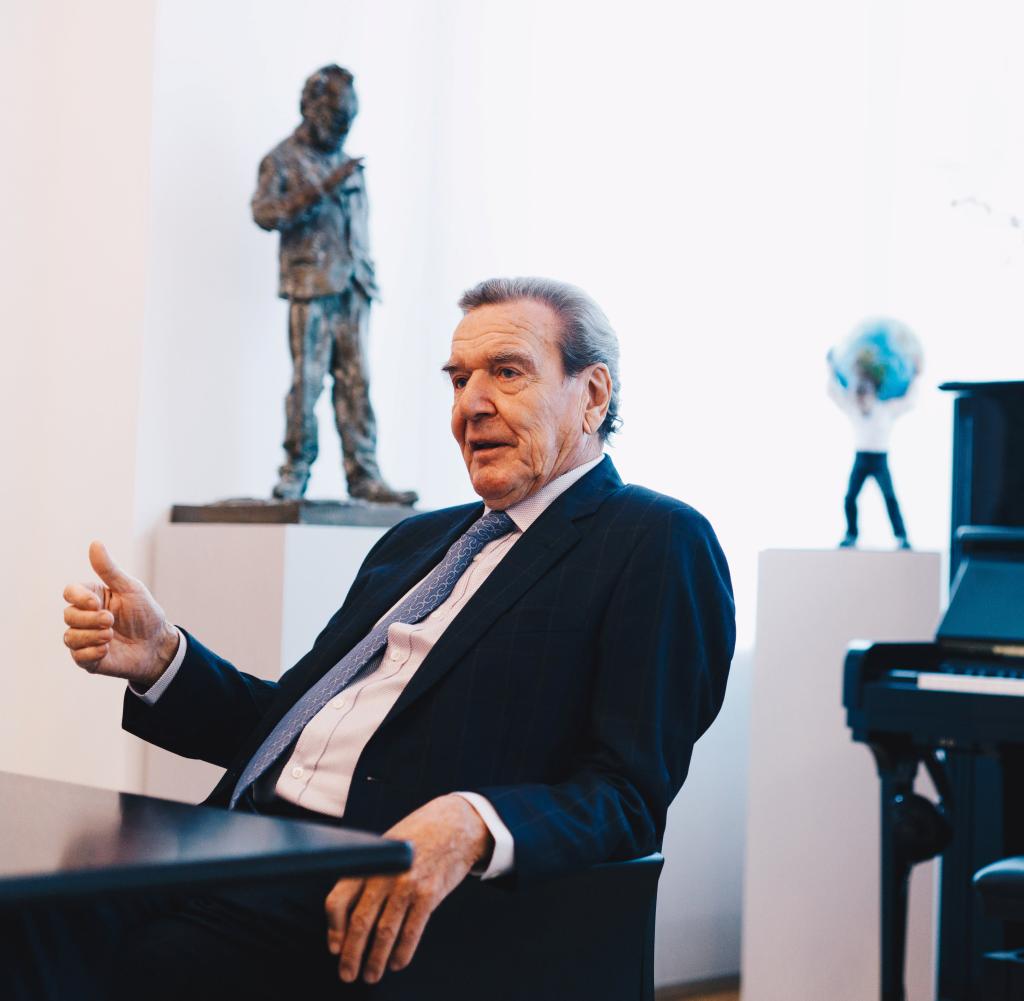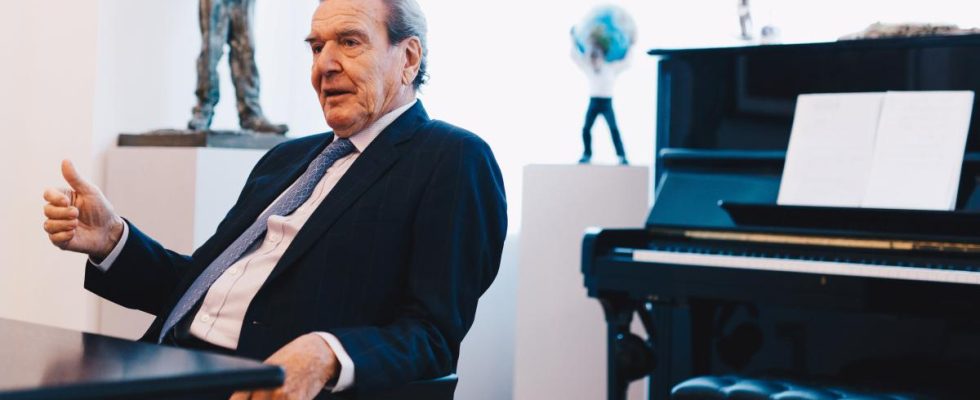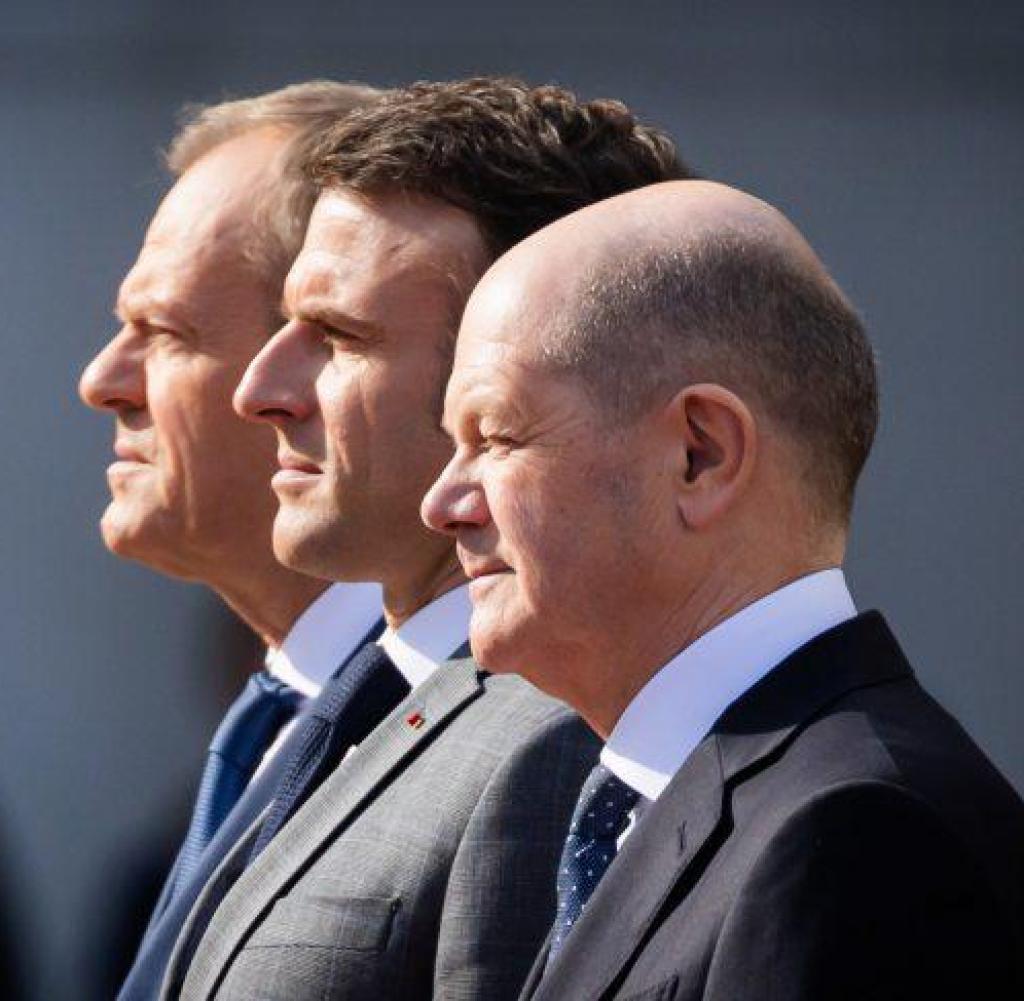Former Chancellor Schröder praises Scholz – “Does what I would expect from a Chancellor at the moment”

Former Chancellor Gerhard Schröder in his home in Hanover
Source: picture alliance/SZ Photo/Friedrich Bungert
Former Chancellor Gerhard Schröder, who was discredited because of his closeness to Vladimir Putin, rarely gives interviews anymore. Now he praises his successor: Olaf Scholz made the right decision on the Taurus issue – there is nothing negative about a “Peace Chancellor”.
AChancellor Gerhard Schröder supported Chancellor Olaf Scholz’s no to the delivery of Taurus missiles to Ukraine and the fundamental rejection of sending ground troops. “I think Olaf Scholz is doing what I would expect from a German chancellor at the moment,” said former SPD leader Schröder to the German Press Agency. At the same time, he called for a German-French initiative for negotiations to resolve the conflict in Ukraine.
When asked whether he would like a “Peace Chancellor” Scholz, the 79-year-old said: “Yes, I would like that.” He added: “If someone as German Chancellor advocates for peace, if someone as “Peace Chancellor “is described, is that negative?”
Schröder defended the SPD parliamentary group leader Rolf Mützenich, who was also sharply criticized from within the ranks of the traffic light coalition for his statement about freezing the war. “It seems to me that the SPD parliamentary group leader, Mr. Rolf Mützenich, is on the right track. His position should be supported by the party and parliamentary group,” demanded the former Chancellor. Mützenich asked last Thursday in the Bundestag debate about a Taurus delivery: “Isn’t it time that we not only talk about how to fight a war, but also think about how to freeze a war and later too can finish?”
Schröder has been friends with Russian President Vladimir Putin since he was chancellor from 1998 to 2005 and continues to work for the majority Russian companies on the Nord Stream pipelines through the Baltic Sea. Although he has called the Russian attack on Ukraine a mistake, he still maintains his friendship with Putin. He is therefore excluded from the SPD leadership, but a party expulsion procedure against him failed.
Three weeks ago, Scholz justified his rejection of a delivery of Taurus cruise missiles with a range of 500 kilometers by saying that Germany could be drawn into the war. Shortly afterwards, he clearly opposed French President Emmanuel Macron’s call to leave sending ground troops to Ukraine as an option on the table.
Schröder shares both of the Chancellor’s positions. “Those are two determinations that he made. I support you. And I hope I don’t harm him with that,” he told dpa. He defended the Chancellor against criticism that he was playing into Putin’s hands by saying no to Taurus. “That’s simply ridiculous,” said Schröder. “I can’t take these attacks that play a role seriously. Neither from Ms. Strack-Zimmermann nor from others.”
Comparison with No to the Iraq War “unhistorical”
Scholz’s rejection of the Taurus delivery has recently been repeatedly compared to Schröder’s rejection of German participation in the US invasion of Iraq in 2002. After the devastating attacks by Islamist terrorists in the USA on September 11, 2001, the former Chancellor initially assured the USA of “unrestricted solidarity” and sent the Bundeswehr to the Afghanistan mission. But he no longer took part in the Iraq War.
Schröder considers the comparison to Scholz’s Taurus-no to be “unhistorical”. However, he would like Germany and France to pull together in the search for a peace solution in Ukraine, as they did when they said no to the Iraq war. “Because these are the powers that have opportunities for discussion because of the long history that also exists with Russia,” he said. “Therefore, it would be appropriate for these two to combine their support of Ukraine with an attempt to find a solution to this conflict. And in principle it should actually be solvable.”
Schröder shows no understanding for the criticism that Scholz wants to make a name for himself as a “peace chancellor” like he did back then. “I find this whole discussion really strange, which simply means: You can support war, regardless of which side, but not for peace. “So I think that’s completely wrong,” he said. “I see how attempts are now being made to portray Scholz as someone who is wrongly trying to create peace. Since when has it not been the task of a responsible politician in Germany, but also beyond Germany, to mediate peace? That’s a natural task.”


